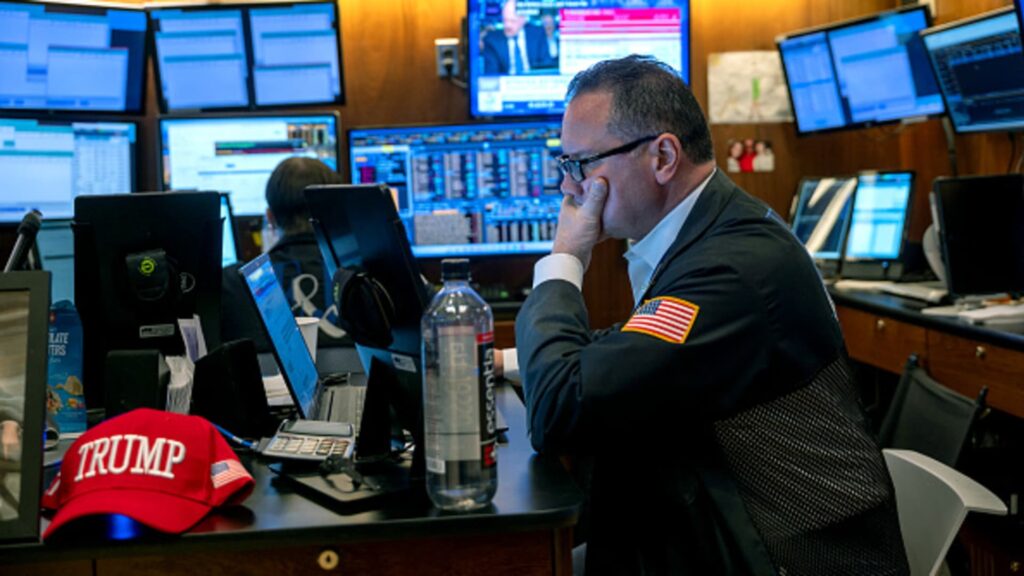Deckers Outdoor was the poorest performer, plunging 48% during this period. The manufacturer of Ugg and Hoka brands has struggled as investors fear that Trump’s import tariffs will adversely affect its profits. Evercore analyst Jesalyn Wong noted that most of Deckers’ production likely occurs in China and Vietnam. Nevertheless, Wall Street forecasts a recovery. Analysts polled by LSEG generally have a buy rating for the stock, with an average price target indicating approximately 67% potential upside.
Tesla also faced significant losses, with its share value decreasing by about one-third over these 100 days. The company is dealing with challenges not only from tariff concerns but also from protests regarding CEO Elon Musk’s support of Trump’s campaign and the contentious government efficiency initiative. Analyst Ben Kallo from Baird mentioned that potential buyers might hesitate if their vehicles are at risk of being damaged due to these controversies. While most analysts surveyed still recommend buying the stock, the average outlook suggests that shares are expected to remain relatively flat over the next year.
Airlines Delta and United are also on the list of poor performers, with their shares dropping more than 36%. With declining consumer confidence, investors are wary of a potential recession impacting the sector. Airlines are seeing weaker demand for the latter half of the year and are resorting to discounts to encourage bookings. Additionally, concerns about reduced government spending and corporate cost-cutting may harm business travel. Despite recent challenges, analysts are optimistic about a recovery, with average targets suggesting over 30% upside for both stocks.
Despite broader market struggles, some companies have managed to thrive. Palantir has outperformed the index with a remarkable 57% increase in its shares. This success follows its strong performance last year, and it appears to be a so-called “Trump trade,” largely unaffected by tariff-induced selling. Company executives believe Musk’s efficiency efforts, referred to as DOGE, will positively impact their business. Shyam Sankar, Palantir’s technology chief, stated during an earnings call that DOGE aims to introduce meritocracy and transparency to government operations, aligning closely with their commercial objectives.
However, Wall Street remains cautious after Palantir’s substantial gains; analysts typically have a hold rating for the stock, predicting a possible decline of nearly 18% over the next year, according to LSEG.
Netflix is also among the top performers, witnessing a 28% increase in stock value, remaining relatively unaffected by tariffs due to its focus on content. Following its rise, analysts project limited further growth, as most recommend buying, yet the average price target suggests only a 2% increase over the next year.
Additionally, several defensive stocks have seen positive performance. Tobacco giant Philip Morris rose by 40%, while telecommunications company AT&T increased by over 20%. Both stocks received buy ratings from most analysts surveyed, with Philip Morris having a price target indicating nearly 2% upside and AT&T projecting around 3.6%.


